Spelling Skills Alphabet Worksheets for Ages 6-8
11 filtered results
-
From - To
Enhance your child's spelling skills with our engaging Alphabet Worksheets designed specifically for ages 6-8. These printable resources provide a fun and interactive way for young learners to master letter recognition and spelling patterns. Each worksheet encourages practice through a variety of activities, including fill-in-the-blanks, word searches, and letter tracing. Tailored to promote literacy and foster a love for words, our worksheets cater to different learning styles, making spelling enjoyable. Perfect for classroom settings or home schooling, these materials will help boost your child's confidence in reading and writing. Start your spelling journey today with our vibrant and educational Alphabet Worksheets!
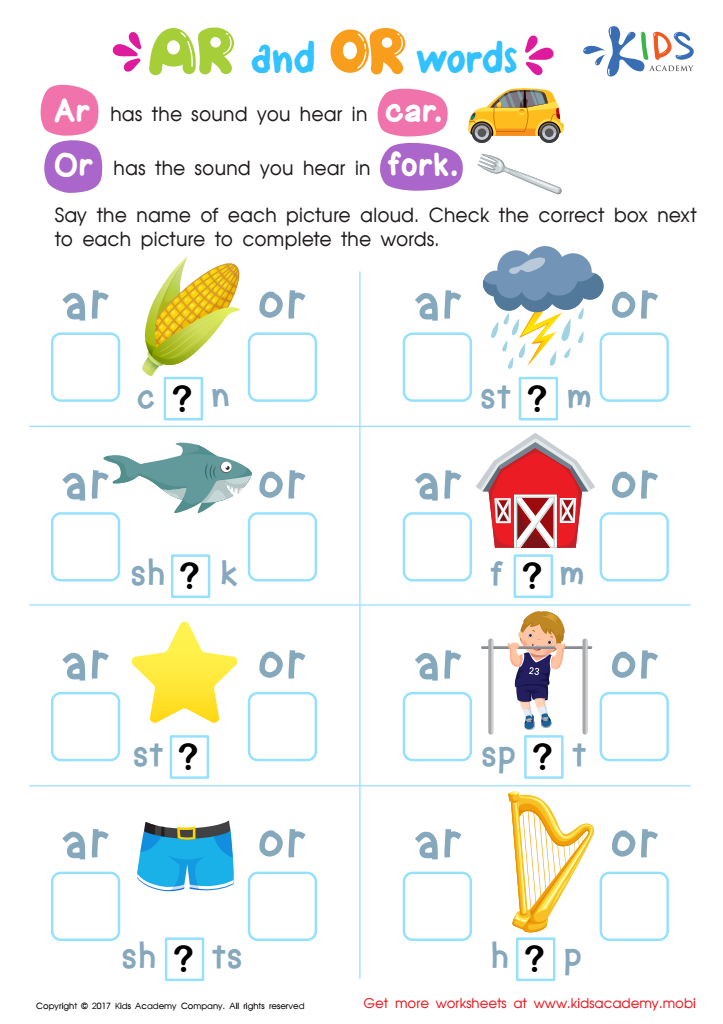

Ar and Or Words Phonics Worksheet
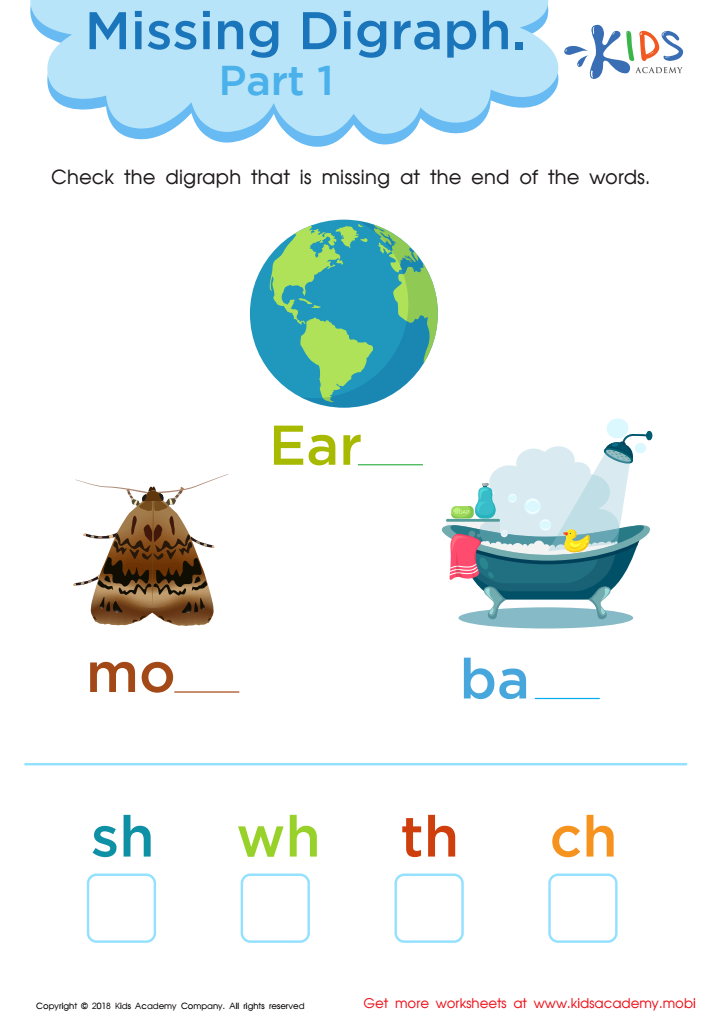

Missing Digraph: Part 1 Worksheet
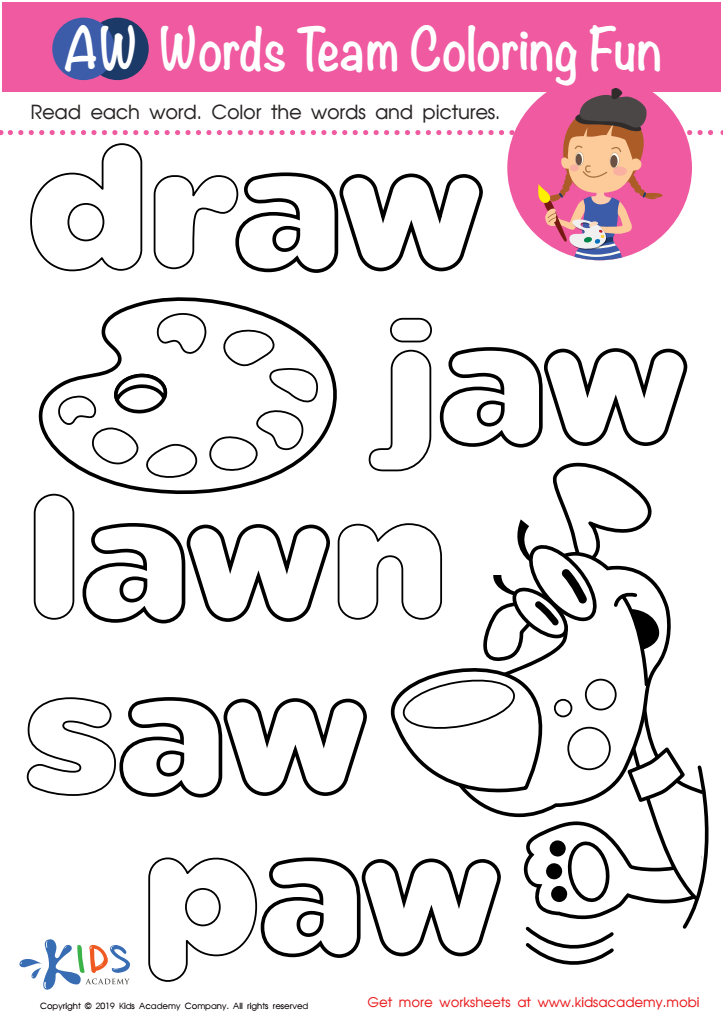

AW Words Team Coloring Fun Worksheet
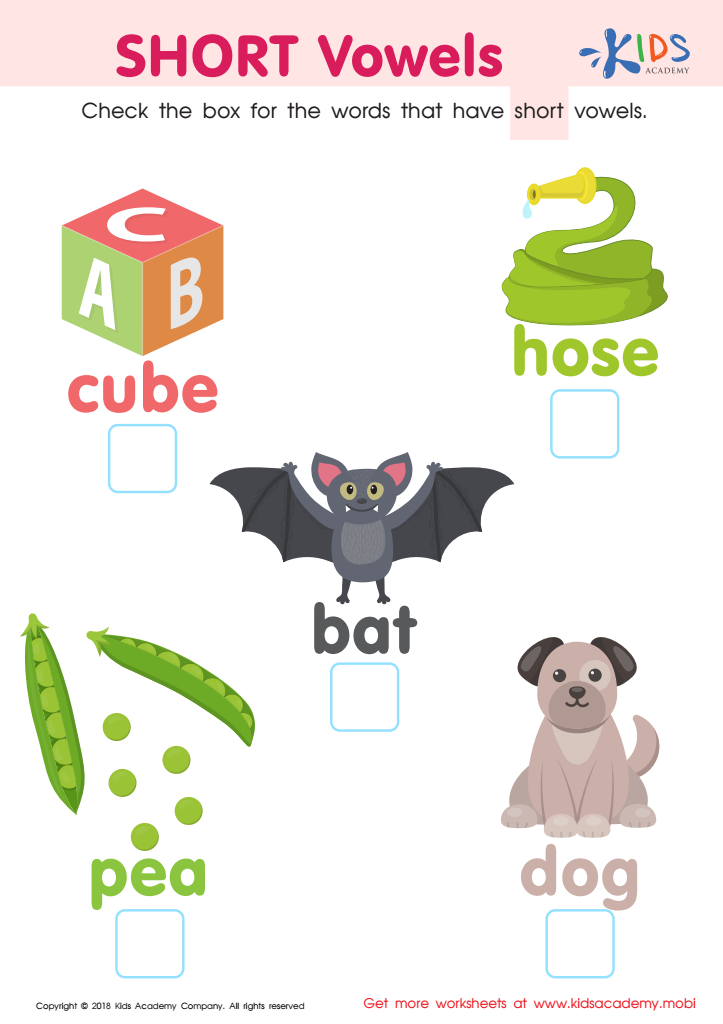

short vowels Worksheet
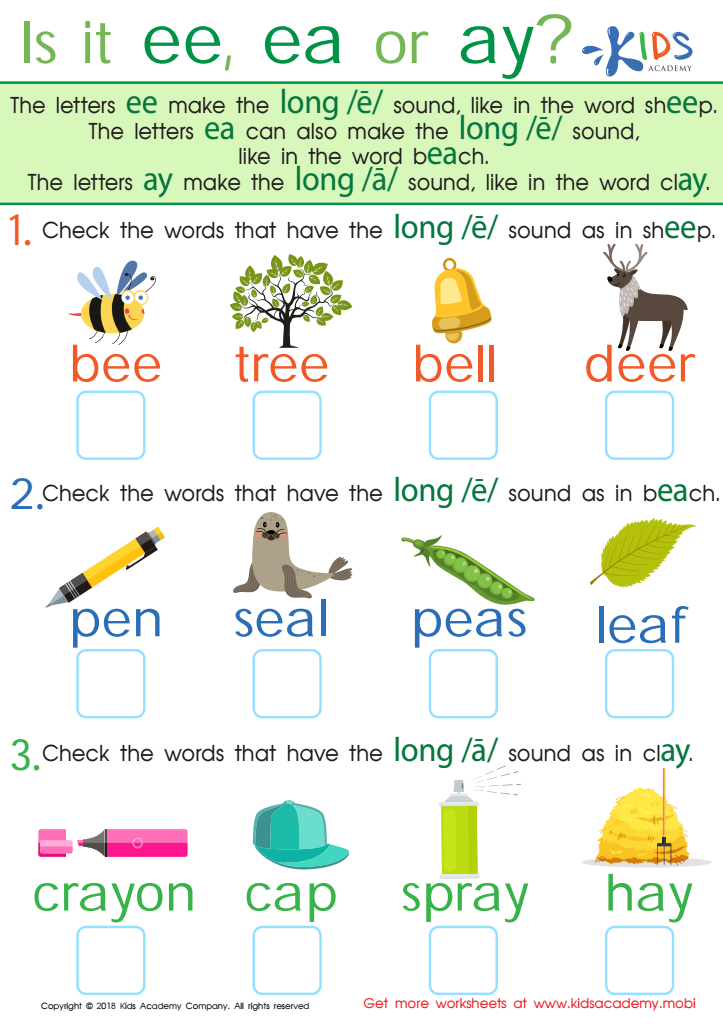

Is It EE, EA, or AY? Worksheet
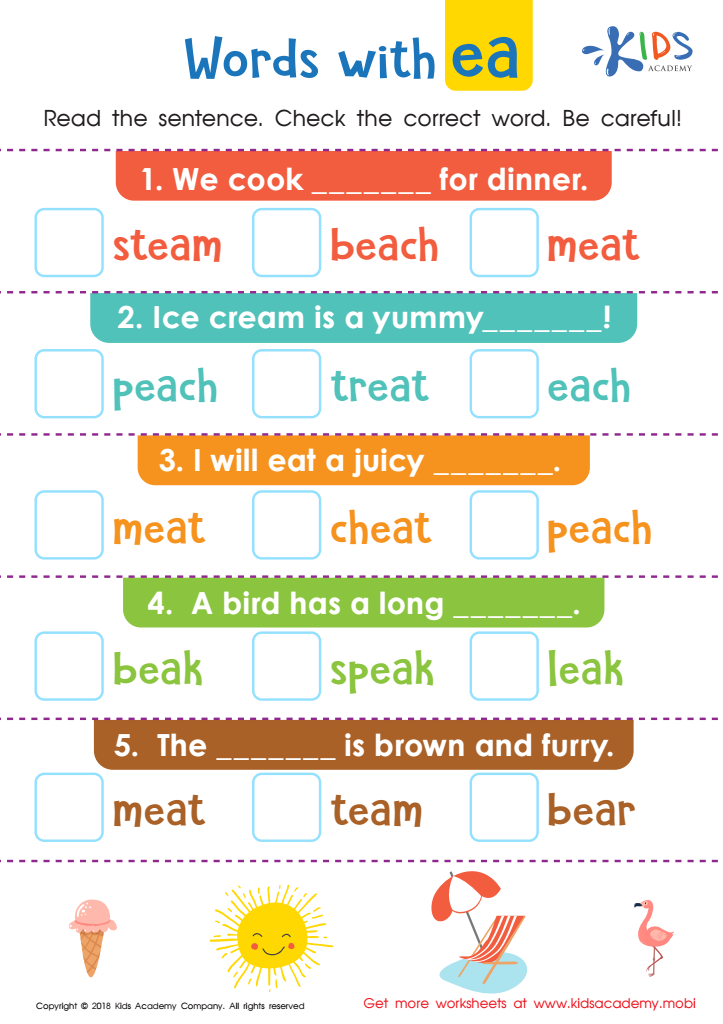

Words with ea Worksheet
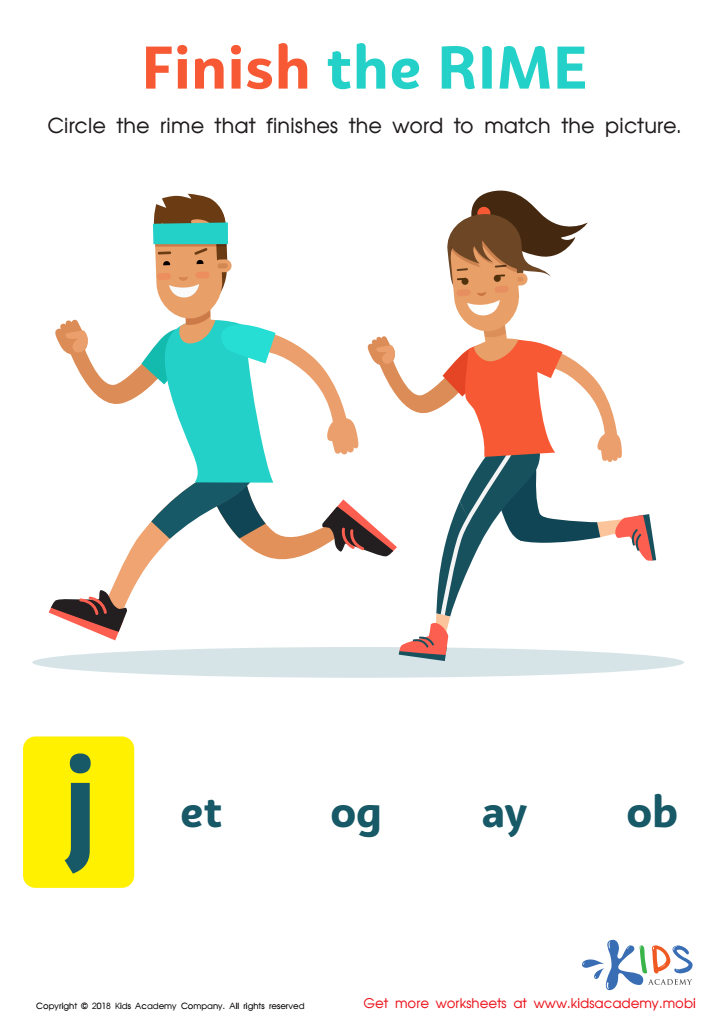

Finish the Rime Worksheet


Words with sound f Reading Worksheet


Phonics and Word Recognition: Assessment 2 Worksheet
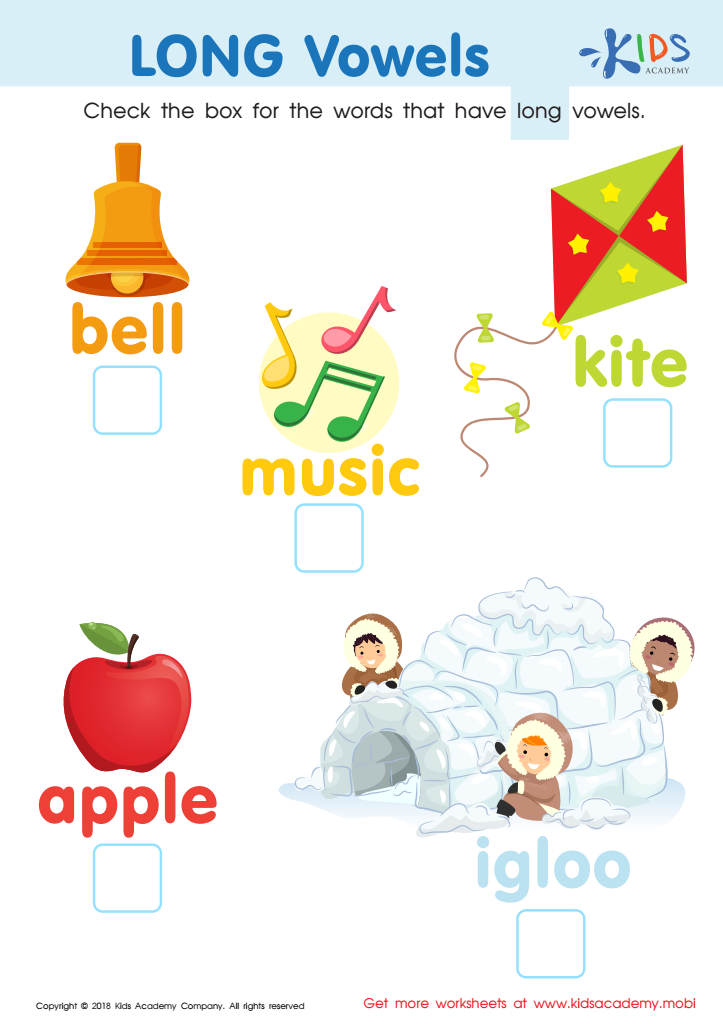

long vowels Worksheet
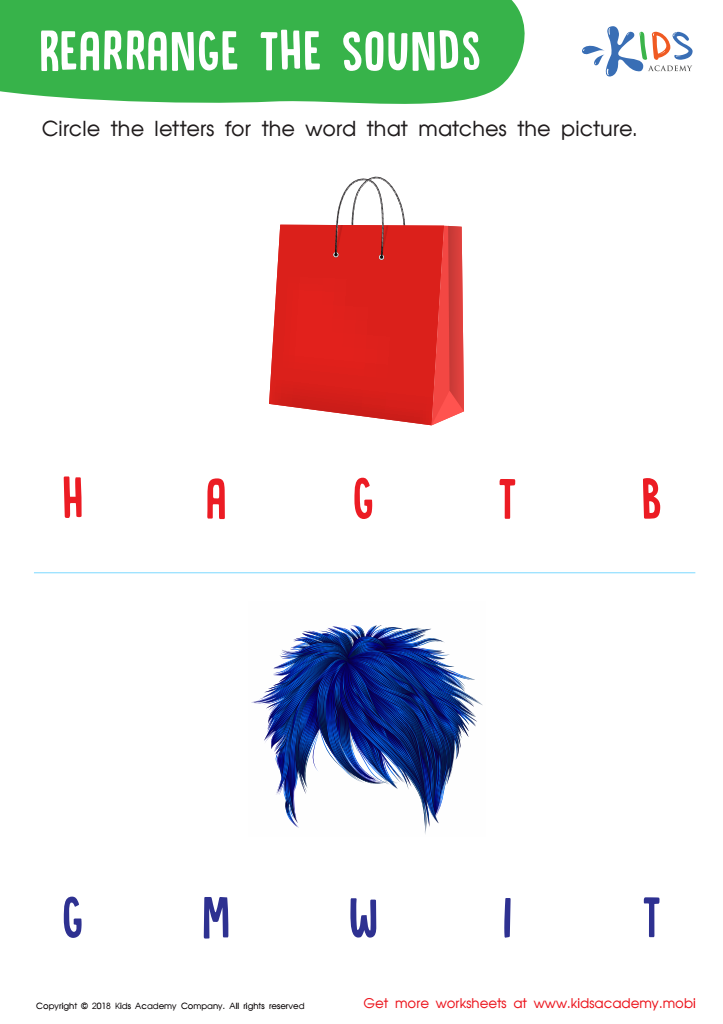

Rearrange the Sounds Worksheet
Spelling skills are foundational to literacy development, particularly for children aged 6-8, who are in a critical stage of learning. At this age, children are transitioning from learning to read to reading to learn. Proficiency in spelling aids in this transition, as it reinforces phonetic awareness, vocabulary development, and comprehension skills.
First, strong spelling skills boost children's confidence in their writing abilities. When children spell words correctly, they are more likely to express themselves freely, fostering creativity and communication skills. Improved spelling also enhances their reading fluency, as they recognize words more easily because their memory for the correct spelling becomes associated with their understanding of meaning.
Moreover, spelling reinforces sound-letter relationships and phonics skills. By practicing spelling through games, activities, and phonetic rules, children develop critical thinking skills, as they learn to break down words into manageable parts.
Teachers and parents should prioritize spelling instruction because it is essential for academic success across subjects. A solid grasp of spelling not only contributes to better writing and reading comprehension but also prepares students for more complex language tasks in the future. Ultimately, fostering spelling skills provides children with tools that are crucial in their educational journey and lifelong learning.
 Assign to My Students
Assign to My Students




.jpg)













